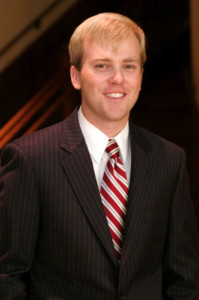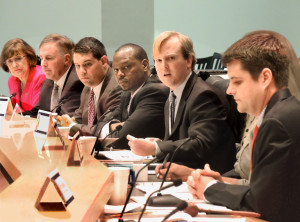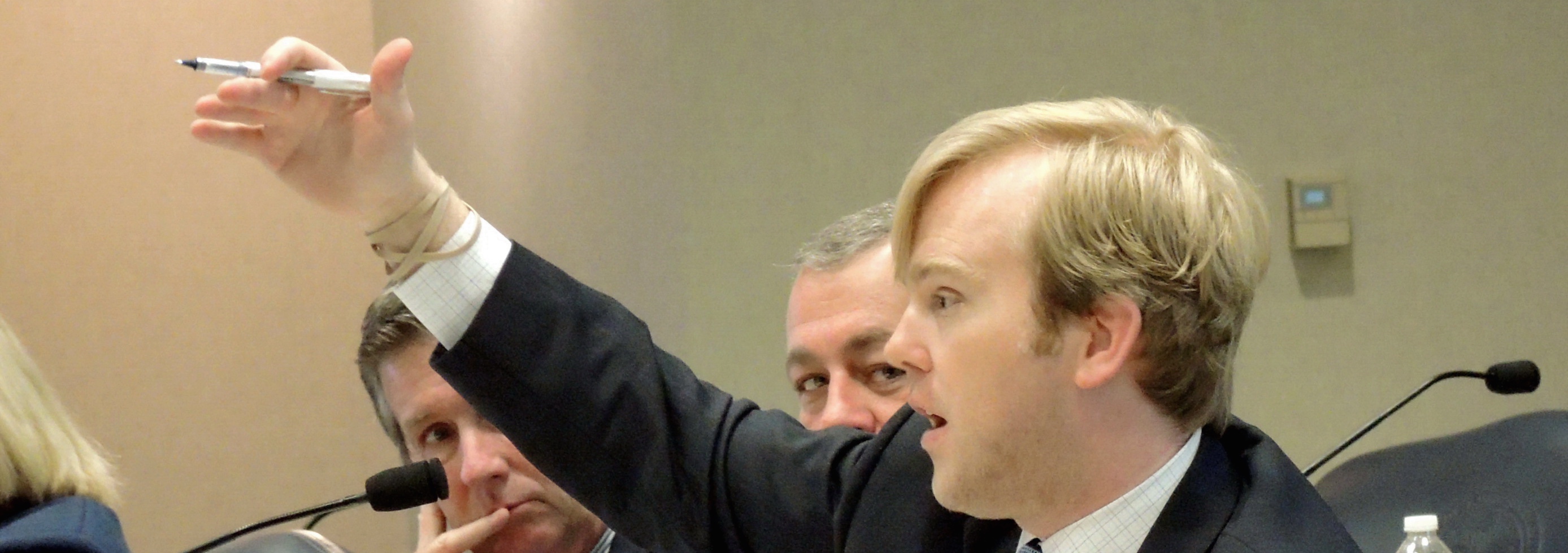
On episode 14 of the Agents of Innovation podcast, we were honored to have with us State Representative James Grant, who represents parts of the Tampa area in the Florida Legislature. While he has served in the legislature since first being elected in November 2010, he is only 33 years old.
In 2010, Grant co-founded a health care technology and services company that today is called CareSync. They are bringing disruption to the health care industry by helping patients get more control of their medical records. As he said on the podcast, health care has gone from being as personal as a doctor visiting your home to becoming industrialized, where the patient is no longer at the center of the services being provided. CareSync seeks to restore the patient to the center of this market.
Even though he has more education and training as an attorney, Grant believes he is more capable of bringing a disruptive mindset to the health care arena than he is to legal field. As he said, “Because I have a classical training as a lawyer with a law degree, I’m probably wired more looking at the legal industry to say ‘yea but that’s the way it’s always been.’ So I think one of things that helped us [at CareSync] in the health care space is that we had a healthy balance of people who understood health care from different perspectives but simultaneously had people challenging the status quo and really trying to figure out how to operate within the framework to get it done.”
CareSync works to help patients take ownership of their health care records — and ultimately their health care.

“Unfortunately, and I think this is one of the biggest misconceptions about health care today is, I think people think with the emergence of electronic health records that patients have this master patient record somewhere – or a longitudinal record of their journey through health care,” said Grant. “The reality is there’s a bunch of fragmented records – and so the hospital may have a portion of it, the primary care provider may have a portion of it, the cardiologist or the endocrinologist may have a portion of it. What we do [at CareSync] is we go get all of that – and even down to the level of sorting paper and then populating the structured data into the CareSync profile. So what a patient ends up with is a timeline that reconstructs every episode of care they’ve had.”
Today, the bulk of the focus of CareSync is working with providers to help provide patients with data so they don’t miss gaps in their health care services and benefits.
“One of the things we have to change about health care if we ever want to have this kind of consumerism effect happen in health care is to empower patients with their own data and with the knowledge that it takes to become a consumer and then to be able to consume the goods and services that they truly need in conjunction with those distribution channels [doctors, hospitals, insurance providers, government, etc].”
In addition to helping create a more patient-centered approach to health care, they are also helping the provider have more information on their patients. As a whole, these services drive down health care costs and help patients get better care.
In 2010, Grant ran for office after first being reluctant to do so. As a son of a former state senator (John Grant, Jr.) he felt like being in public office demanded too much time and sacrifice and not something he felt he would ever do himself. However, after he was approached to run, he considered it because of what was at stake for the country in 2010. He brings a mindset of wanting to bring more innovation to government – something he feels is not partisan and in fact is being embraced by other young people in government like him who are “treating government leaner to try to deliver better services and transform the way we govern.”
“Our current treatment of data and our current operation in the State of Florida is really, really bad,” says Grant. One example is the way state agencies communicate data. “How do we get government to act like a lean startup? How do we get government to deliver better services? A lot of that is founded in the way that we treat and procure technology and data that is ours or that is public.”

“Coming from the technology and the disruptive community, I take maybe a non-traditional look at government in trying to figure out how can we use technology to make government leaner and to make government smaller and to deliver better services to the taxpayers who own the government,” says Grant.
One of the things he is trying to get done in the Florida Legislature this year is the creation of a data catalog. This would allow us to easily navigate what records the state is keeping on each individual and in what systems they are kept across various state agencies. This year, each state agency would simply be asked to report back to the legislature what types of data they are keeping so that we can begin to develop the architecture and structure of the data.
At only 33 years old, Grant has already amassed extensive experience as an attorney, an entrepreneur, a disrupter in the health care arena, and as a driver of public policy from his elected seat in the Florida Legislature. He has particularly specialized in leveraging technology for better health care and better government.
When asked to impart advice for young people, he says, “If you’re the smartest person in the room, you’re in the wrong room. Soak up what you can from people who are a lot smarter than you. And at the same time, don’t be scared.” He says that being successful as an entrepreneur “takes a balance of being bold, of recognizing that failure is not a bad thing – failure is a very good thing: the question is how we respond to failure.” For the sake of the future of health care and the future of good government, let’s hope that is a prescription for success for James Grant and the customers and taxpayers he is working to help.
